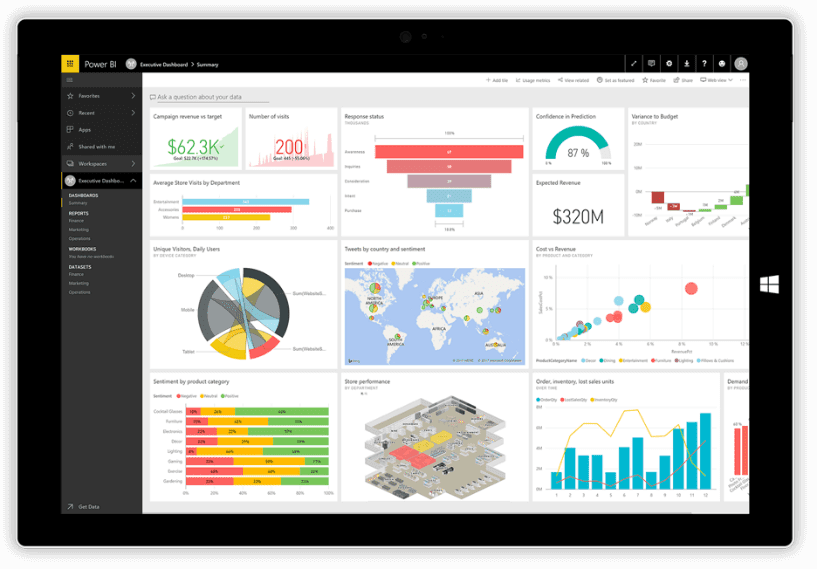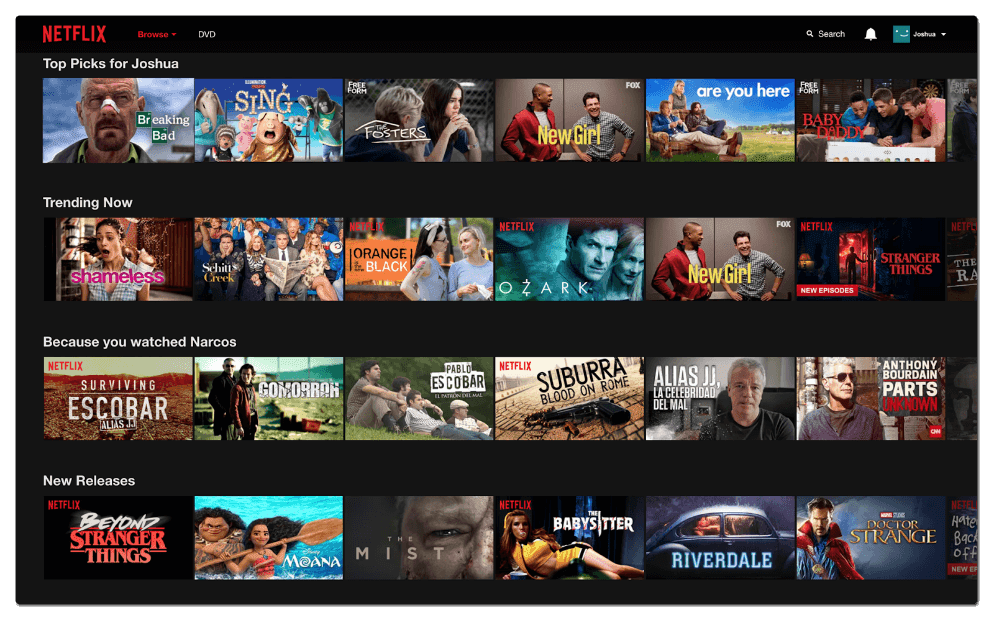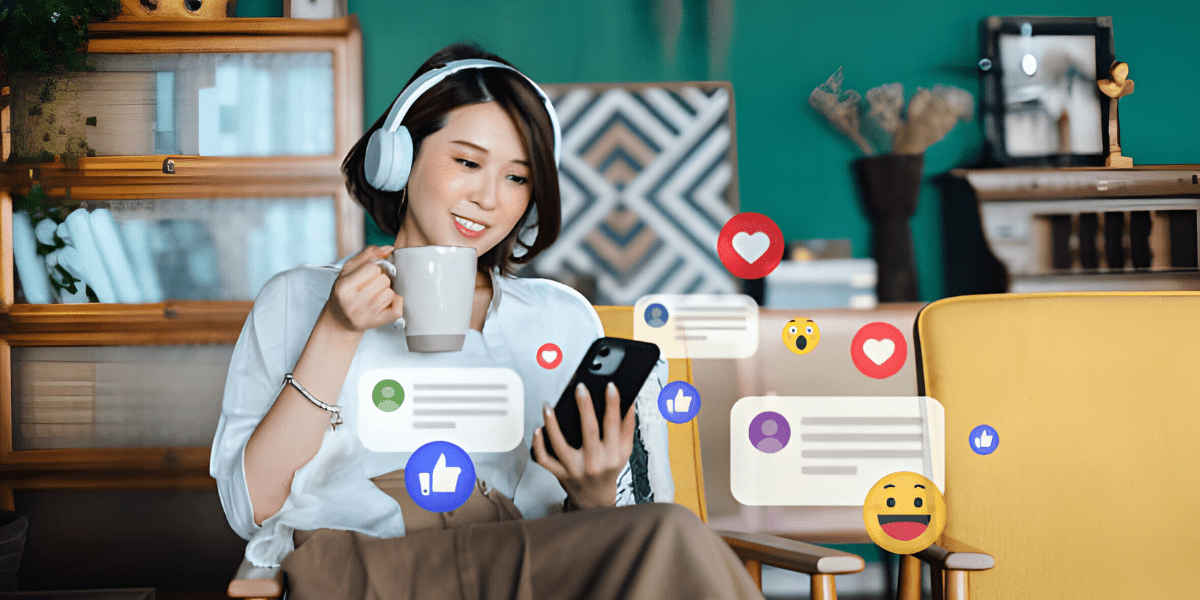Table of content
Marketing is becoming a vital aspect of any company's business domain. It allows the company to thrive and expand. Without the right marketing strategy and roadmap, it would be almost impossible to attract and engage customers, which can cause a notable impact on the growth and even decline the revenue streams. Therefore, it is crucial to stick with the contemporary marketing trends to stay ahead of the rivals and perform better.
Modern times have brought incredible evolution to the marketing industry. The Internet has opened up many new opportunity corridors, and people are now focusing more on digital marketing than conventional marketing practices. In fact, digital marketing occupies almost half of the total marketing shares. One of the most notable advancements in digital marketing is integrating artificial intelligence and machine learning in marketing practices to ensure rational decision-making and smart effort in the right direction.
Use Cases of AI in Digital Marketing
AI for Automated Processes
Human insight is still crucial despite the skyrocketing trend of adopting AI technology. AI is becoming a primary aspect of a modern paid media strategy. By automating the iterative tasks, you can spare a lot of time and money that can be utilized elsewhere in the core business operations. Investing less time on iterative tasks can also boost productivity and performance.
AI for Content Creation and Curation
Producing quality content is a primary aspect of establishing authority within your industry or niche. Ensuring authority improves organic rankings and transparency in the Search Engine Results Pages - SERPs. Conventional Marketers may be reluctant to let AI take the controls and generate content autonomously, but this technology is closer than one may think. The New York Times, Reuters, and Washington Post already use AI to generate content. The Press Association, for instance, can now produce 30,000 local news articles a month using AI. You might think that these are formulaic like who, what, where and when stories, and you are right; some of them certainly are. But now, AI-produced content has expanded beyond formulaic production to more creative writing domains such as poetry and novels.
The methodology that automatically produces a written narrative from data is called natural language generation (NLG), which is already used for different content generation needs from business intelligence dashboards, business data reports, personalized email, and in-app messaging communication to client financial portfolio updates, etc. Now digital marketers will have more time to work on strategic growth plans, face-to-face meetings, and other core business areas where human assistance is more valuable than AI.
AI to Predict Customer Behavior
Predictive analytics is another of the most exciting use cases of AI for digital marketers. Many predictive analytics companies encourage users to visualize and analyze data in a secure environment, such as Microsoft Power BI, a self-service platform introduced for non-technical business users. Now you don't need to be an expert in big data to adapt to the new technology.

Microsoft Power BI
The accuracy promised by the AI tool is so overwhelming that you can predict customers' future behaviour based on past behaviour, data, and statistical models. In this aspect, AI is not only saving time but ensuring precision. When customers' actions can be predicted accurately, you can showcase them with highly personalized ads and notifications that will lead them through a buying funnel that improves engagement and boosts sales. In the same way, AI-based digital marketing can let you acknowledge your target market segment. Outlining your Ideal Customer Profile - ICP is crucial to extract the most out of your marketing budget because spending time on leads that aren't going to buy is a waste of time and money. As far as self-evaluation is concerned, Modern AI tools can analyze your sales history and quickly determine the firmographics and demographics to let you know where you can focus your efforts.
AI for Better Personalization
Personalization is no longer just a trendy buzzword as personalized messaging, as it is quickly becoming a norm. Most online consumers expect brands to personalize their messages, whether personalized based on matching their location, demographics, or certain interest. Many consumers won't even give attention to messages that are not personalized. By analyzing consumer data and behaviour, AI algorithms can actively personalize CX's customer experience to ensure consistent engagement and interest. Recommendation engines are one of the most prominent examples of AI technology by virtue of which you can easily adapt a more fruitful marketing strategy by knowing your customers' buying habits and interests. You can most commonly witness this technology used on eCommerce platforms and OTPs. Consider an example of Netflix. Their goal is to keep you interested in their subscription service. Before and after you finish your favourite season or movie, Netflix pushes recommendations and Top Picks for you to keep you engaged and refrain from cancelling.

The average user doesn't know about Netflix using AI to learn their watch history – they'll just be excited to start watching Dark as soon as they finish Stranger Things.
Amazon uses AI greatly by providing personalized recommendations based on buying history, items you have viewed or liked and items in your cart, etc. These recommendations are more useful once a user is already in the final stage of the purchasing funnel.
AI chatbots and Digital Marketing
Different AI methodologies such as semantic recognition and natural language processing are intended to improve customer experience and deliver a better response. Compared with manual customer service, AI chatbots have many perks. First of all, AI chatbots allow businesses to go one step further than the conventional "one-to-one" form of customer service. Instead, chatbots can promise "one-to-many" support by interacting with several customers simultaneously and in different time zones. Secondly, AI chatbots don't need to rest as humans do to answer customer queries 24/7 and in real-time with the same accuracy and speed. Not only does this mean they are highly efficient, but they can also deliver services outside of office hours. Last but not the least, customers can opt for the language used by AI customer service as per their needs and feasibility, allowing a brand to deliver a personalized customer experience. Many brands have begun to interact with their customers using messenger applications like WhatsApp, Facebook Messenger, and Slack, all of which can benefit from AI chatbots in order to automate the process and improve customer experience without involving human effort.
Chatbots for Customer Service
Chatbots, powered by AI, can communicate with customers in real-time, providing instant responses to inquiries and support requests. These virtual assistants are capable of handling a wide range of tasks, from answering FAQs to guiding users through a purchase process, enhancing the customer experience while reducing the workload on human customer service representatives.
Predictive Analytics
Predictive analytics leverages AI to forecast future customer behaviors based on their past actions. By analyzing data patterns, AI can identify potential future purchases, allowing marketers to tailor their strategies to nudge the customer towards a sale. This proactive approach in marketing ensures that customers are presented with products or services they are likely to need, improving conversion rates.
Content Creation
AI is now able to generate basic content, such as news articles, social media posts, and even some types of image content. While it may not replace human creativity, AI can significantly speed up content production, providing marketers with a tool to create more content in less time. This is particularly useful for maintaining a consistent online presence and engaging with audiences regularly.
SEO and Content Strategy
AI tools can analyze search trends and user queries to inform SEO and content strategies. By understanding what users are searching for, marketers can tailor their content to meet these needs, improving their visibility in search engine results. AI can also suggest topics that are likely to attract attention, helping content creators to stay ahead of trends.
Social Media Insights
AI's ability to process and analyze large datasets extends to social media platforms, where it can monitor mentions, sentiments, and trends related to a brand. This provides marketers with valuable insights into public perception, allowing them to adjust their strategies in real-time to capitalize on positive trends or mitigate negative feedback.
Email Marketing
In email marketing, AI tools like an AI email writer are used to personalize email content for individual recipients, test different subject lines, and determine the optimal send times to increase open and click-through rates. By continuously learning from user interactions, AI can enhance the effectiveness of email campaigns, ensuring that messages are more relevant and engaging to each recipient.
Voice Search Optimization
As voice search becomes more popular, AI is helping marketers optimize their content for voice queries. This involves understanding the natural language patterns used in voice searches and ensuring that content provides clear, concise answers to these queries. Optimizing for voice search can improve a brand's visibility in voice search results, a growing segment of online searches.
AI for Product Feed Marketing
Artificial Intelligence is transforming the way eCommerce businesses manage and optimize their product feeds. Traditionally, feed optimization required manual editing, from writing product titles and descriptions to mapping categories and ensuring channel compliance, an approach that was both time-consuming and prone to errors. With AI, this process has become automated, intelligent, and highly scalable. Machine learning algorithms can now analyze product data, identify missing attributes, and generate optimized content tailored for different channels, audiences, and search engines. AI-powered systems can even detect trends, predict which products will perform best, and continuously refine feeds based on performance data.
This shift allows marketers and agencies to focus less on repetitive feed maintenance and more on strategic campaign management and performance analysis. DataFeedWatch exemplifies this evolution, providing AI-driven feed optimization that adapts to all types of catalogs, from small online stores to large enterprise retailers, as well as agencies managing multiple client accounts. By automating enrichment, categorization, and feed transformation, DataFeedWatch helps businesses of every size improve product visibility, enhance ROI, and stay competitive in an increasingly data-driven eCommerce landscape.
FAQs on AI in Digital Marketing
Q1: What is AI in digital marketing?
AI in digital marketing refers to the use of artificial intelligence technologies to improve marketing strategies and efforts. This includes personalizing content, optimizing ad campaigns, automating customer service with chatbots, and much more, all aimed at enhancing efficiency and engagement.
Q2: How does AI personalize marketing content?
AI personalizes marketing content by analyzing user data like browsing history, purchase behavior, and preferences. It uses this information to predict what content or products a user might find interesting, creating personalized experiences for each individual.
Q3: Can AI write blog posts or create content on its own?
Yes, AI can generate basic content like blog posts, social media updates, and simple images. However, it's best used as a tool to assist content creators by providing suggestions or drafting content, rather than replacing human creativity entirely.
Q4: How do chatbots improve customer service?
Chatbots handle inquiries and support tasks 24/7 without human intervention, providing instant responses to customers. They can answer FAQs, guide users through processes, and even handle basic transactions, improving the overall customer experience.
Q5: Is AI in digital marketing expensive to implement?
The cost varies depending on the scale and tools used. Some AI tools and platforms offer cost-effective solutions for small to medium-sized businesses, while more advanced implementations might require a significant investment. However, the return on investment can be substantial due to increased efficiency and engagement.
Q6: How does AI help with SEO and content strategy?
AI tools analyze search trends and user behavior to suggest content topics and optimize for search engines. They can identify what users are searching for and help create content that matches these queries, improving visibility and engagement.
Q7: What is predictive analytics in marketing?
Predictive analytics uses AI to analyze data and predict future customer behaviors, such as potential purchases. Marketers use these insights to tailor their strategies, targeting users with content and offers that match their predicted needs.
Q8: Can AI manage social media accounts?
While AI can't fully manage social media accounts, it can help by scheduling posts, analyzing engagement data, and providing insights into trends and sentiment. This aids in creating more effective social media strategies.
Q9: How does AI optimize email marketing campaigns?
AI optimizes email marketing by personalizing emails for each recipient, testing different subject lines, and determining the best times to send emails. This increases the chances of emails being opened and acted upon.
Conclusion
AI is revolutionizing digital marketing by providing tools and technologies that enhance the efficiency and effectiveness of marketing strategies. From personalization to predictive analytics, AI is enabling marketers to engage with their audiences in more meaningful ways. As AI technology continues to evolve, its impact on digital marketing is expected to grow, offering even more opportunities for innovation and engagement. Marketers should stay informed about AI developments to leverage these technologies fully, ensuring they remain competitive in the ever-changing digital landscape.




